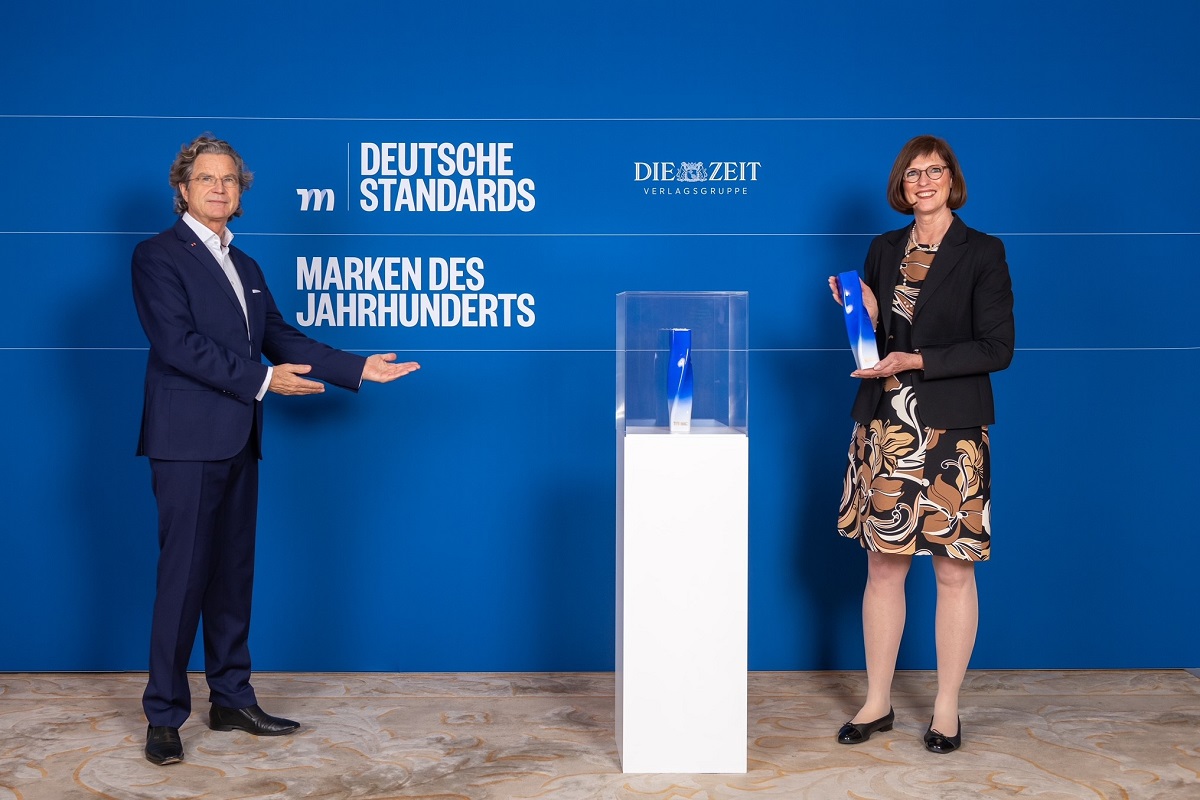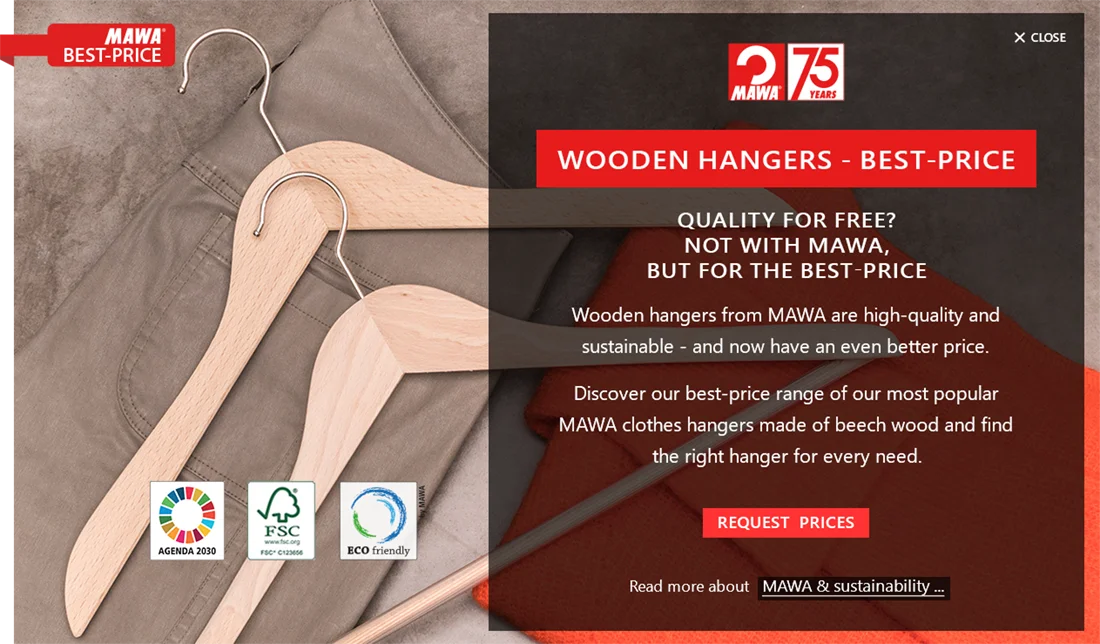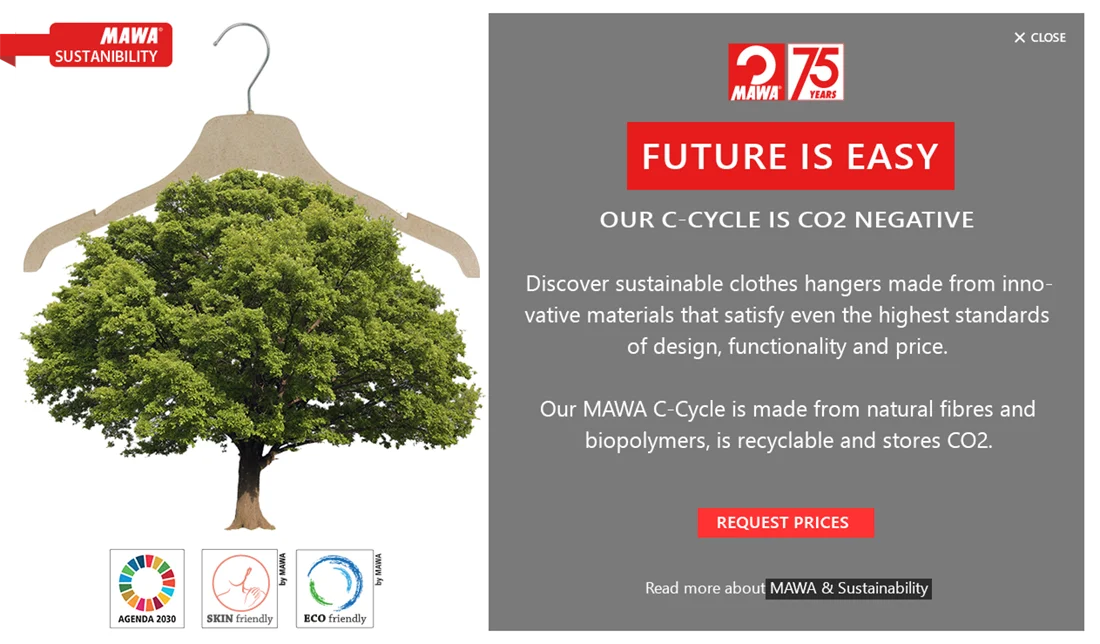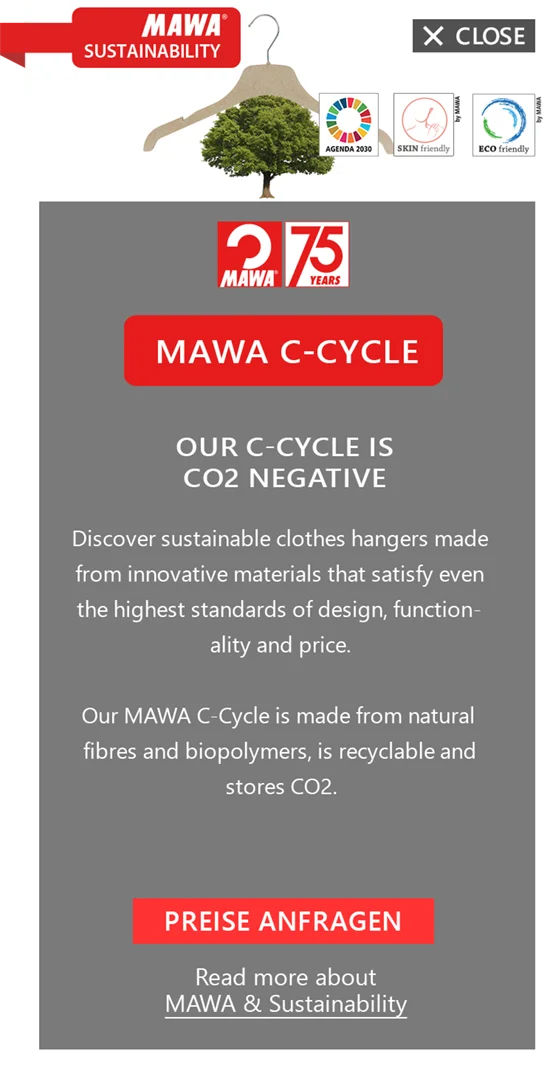Quality, emotion or social responsibility - what makes a brand of the century?

A brand stands for a promise of quality
If you are asked for a well-known coffee filter bag, a brand of handkerchief, a correction fluid or a transparent adhesive strip, we have a name in mind right away. They are proper names that have made it into a generic name. In linguistics, one speaks in these cases of a deonym that is made up of the Greek words for "God" and "name". But not only brands that stand for a product type make a promise.
A brand stands for a promise of quality. It gives the buyer the feeling of having chosen the best," says Michaela Schenk, owner and managing director of the clothes hanger manufacturer MAWA GmbH.
Her company was recently named Brand of the Century and the entrepreneur knows which factors play an important role in this.
Emotion and Quality
From a legal point of view, names, slogans, symbols and logos or sounds can be regarded as trademarks. They are characterised by their uniqueness and can thus be legally protected against imitations and copies. If a trademark is registered, the owner has the sole right of use. In marketing, however, the function of a brand goes far beyond that. It stands for an image, i.e. an appearance that a product or company has for other people. It connects with customers through stories and experiences. Emotion is considered the key point of a successful brand.
I am sometimes asked how an everyday object like a coat hanger can trigger emotions and represent a brand. Then I'm happy to reply that the same question was probably asked years ago to a well-known manufacturer of handkerchiefs," says Schenk and goes on to explain: People define themselves through their clothing. When your favorite piece of clothing is hanging on a bad hanger, it's like sleeping in a hammock at night: not comfortable.
Brand loyalty sometimes lasts a lifetime and because of the promise of quality, customers are often less price sensitive. Brands give customers security. For companies, this means increased profitability and profit margins. But employees can also be attracted by a strong brand - an advantage in the fight for talent. For a strong brand, however, it is also important to know your target group and USPs, i.e. the unique selling point of your own company.
If you want to establish your company as a brand, you must also have a vision of the purpose of your idea.
Because a brand name and claim with recognition value are not the only things that make a brand successful.
Social Impact - the new Must-have
Nowadays, brands not only make a promise of quality, but also often of so-called corporate social responsibility. Young consumers in particular expect a brand to take a stand on issues such as equal opportunities and climate protection. The awareness of this has steadily increased over the past few years, and now customers expect companies to be willing to make positive changes. However, it is not advisable to only want to give yourself a positive image in order to increase sales. Consumers these days are quick to spot when a company only pretends to have a positive impact on global issues, so a casual image campaign can quickly backfire.
Michaela Schenk is convinced: Companies can no longer shirk their responsibilities. They are just as responsible for a better and fairer world as each and every one of us.






